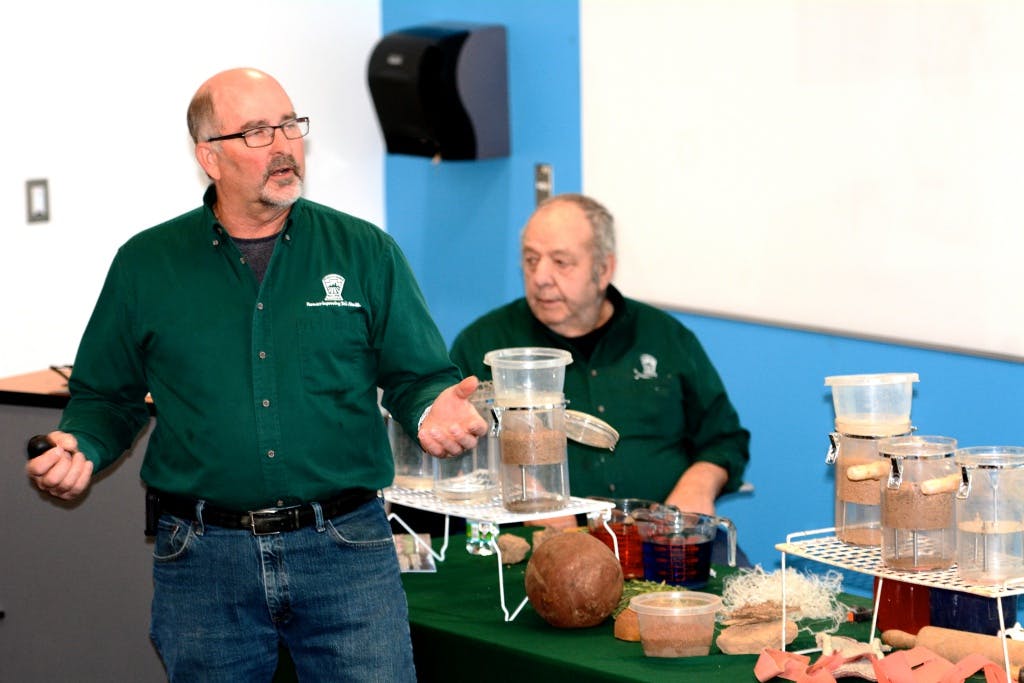'Sustainability is a pathway to the future'
Tilling the land is a time-honored tradition in American agriculture, but many farmers are learning that alternative practices can result in similar crop yields while rendering the land more sustainable.
PICTURED: Jim Hershey speaks about no-till and cover crop practices on his Lancaster County, Pa., farm as Leroy Bupp looks on. Each presented on their sustainable farming practices.
Wilmington College offers a minor in sustainability that complements the institution’s multiple academic concentrations in agriculture. Students in that minor-attracted two experts on the sustainable practices of no-till and cover crops to speak March 2 with several agriculture classes.
Jim Hershey has a grain and livestock farm and has been using no-till strategies for 25 years and cover cropping for 15, while Leroy Bupp uses no-till on his 600-acre farm that has been in his family for 200 years. Both are from Lancaster County, Pa.
Discussed was everything from crop rotation and soil erosion to carbon footprints, pesticide and nutrient runoff, and how plowing affects worms in the soil. Several students, all minoring in sustainability, shared their thoughts about the presentations.
Renee Sherman, a sophomore from Upper Sandusky majoring in agri-business, said sustainability will play a major role if American agriculture is going to successfully meet the world’s food needs throughout the 21st century.
“Sustainability is a pathway to the future,” she said. “It gives us a way to successfully produce more food.”
Both Hershey and Bupp shared empirical and anecdotal evidence about their success with those practices.
Anna Buck, a junior from West Liberty majoring in agri-business, said the presentations made sustainable practices even “more appealing” to her, especially how they can increase the moisture available to plants in the dry season and how the soil can more efficiently absorb water during the wet season.
“They educated us so we can educate our parents on no-till and cover crops,” she said, adding that the lessoned learned will be valuable as today’s students embark upon their careers in agriculture.
Freshman Marissa Matlin, an agronomy major from Windber, Pa., agreed the presentations enlightened them on how these practices can “benefit” the environment and crops — and the bottom line.
“I talked to a lot of other freshmen who said they got a lot out of it,” she said. “Some were so interested they came back for the second session even when they didn’t have to.”
Lucas Fledderman, a senior majoring in animal science from Brookville, Ind., looks forward to sharing what he learned with “a lot of farmers who are used to conventional tillage — I’m going to show dad and grandpa there’s something to this.”
Dr. Monte Anderson, professor of agriculture, said the current fascination with such sustainable practices as no-till and cover crops is, in many ways, nothing new.
“How did out great-grandparents do it without the technology we have today? They rotated crops among other things,” he said, noting his master’s thesis in the 1970s focused on sustainable farming practices. “If you make the system work, you’ll preserve your water resources.
“In agriculture, we sometimes rediscover the wheel.”

Agriculture Students Hear Case Studies in Sustainability
Agriculture|Sustainability